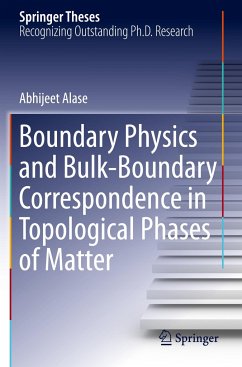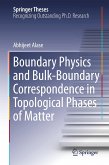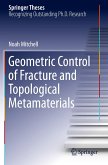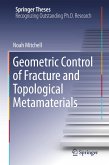This thesis extends our understanding of systems of independent electrons by developing a generalization of Bloch's Theorem which is applicable whenever translational symmetry is broken solely due to arbitrary boundary conditions. The thesis begins with a historical overview of topological condensed matter physics, placing the work in context, before introducing the generalized form of Bloch's Theorem. A cornerstone of electronic band structure and transport theory in crystalline matter, Bloch's Theorem is generalized via a reformulation of the diagonalization problem in terms of corner-modified block-Toeplitz matrices and, physically, by allowing the crystal momentum to take complex values. This formulation provides exact expressions for all the energy eigenvalues and eigenstates of the single-particle Hamiltonian. By precisely capturing the interplay between bulk and boundary properties, this affords an exact analysis of several prototypical models relevant to symmetry-protected topological phases of matter, including a characterization of zero-energy localized boundary excitations in both topological insulators and superconductors. Notably, in combination with suitable matrix factorization techniques, the generalized Bloch Hamiltonian is also shown to provide a natural starting point for a unified derivation of bulk-boundary correspondence for all symmetry classes in one dimension.
Bitte wählen Sie Ihr Anliegen aus.
Rechnungen
Retourenschein anfordern
Bestellstatus
Storno








